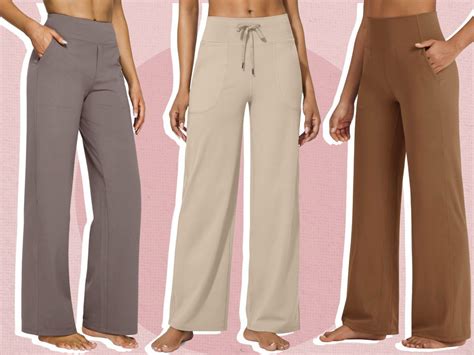
Bruce Willis’s wife, Emma Heming Willis, has shared a poignant and emotional outlook on the future as she navigates life as a caregiver for the acclaimed actor, who was diagnosed with frontotemporal dementia (FTD) in 2023. In a recent interview and social media posts, Emma candidly discussed the challenges and complexities of living with FTD, emphasizing the importance of awareness, support, and finding moments of joy amidst the difficulties. She expressed both the heartbreak of witnessing Bruce’s decline and her determination to advocate for others facing similar circumstances.
Emma Heming Willis, in a raw and honest dialogue about her family’s journey, articulated the profound impact of Bruce Willis’s frontotemporal dementia on their lives. Speaking openly about the future, she highlighted the emotional toll of being a caregiver while simultaneously emphasizing her commitment to raising awareness and fostering a supportive community for those affected by FTD. Her reflections provide a glimpse into the everyday realities of living with the disease, marked by both moments of grief and unwavering hope.
“I’m not good,” Emma confessed in an interview, acknowledging the weight of her responsibilities. “I have to constantly remind myself that I need to take care of myself too.” She emphasized the importance of self-care for caregivers, drawing attention to the often-overlooked emotional and physical demands they face. Emma’s vulnerability resonated deeply with many who understand the challenges of caring for a loved one with a debilitating illness.
Since Bruce Willis’s initial diagnosis of aphasia in March 2022, followed by the more specific diagnosis of frontotemporal dementia in February 2023, Emma has become a vocal advocate for FTD awareness. She uses her platform to share insights into the disease, its impact on families, and the resources available for support. Her transparency has been lauded by many in the FTD community, who appreciate her efforts to break down the stigma surrounding the condition.
In addition to raising awareness, Emma actively works to create a sense of community among caregivers. She often shares personal anecdotes, practical tips, and words of encouragement on social media, fostering a space where individuals can connect, share their experiences, and find solace in knowing they are not alone. This sense of solidarity is crucial for caregivers, who often feel isolated and overwhelmed by the demands of their role.
Emma’s commitment extends beyond social media. She collaborates with organizations dedicated to FTD research and support, participating in fundraising events and advocacy campaigns. Her goal is to improve the lives of those affected by FTD and to drive advancements in diagnosis, treatment, and care. By amplifying the voices of those living with FTD, Emma hopes to create a more compassionate and understanding world for individuals and families facing this challenging condition.
The journey has been far from easy, as Emma openly admits. The emotional toll of witnessing Bruce’s cognitive decline is significant, and she has spoken about the grief and sadness she experiences. However, amidst the challenges, she also finds moments of joy and gratitude, cherishing the time she spends with her family and celebrating the small victories along the way.
Emma’s strength and resilience serve as an inspiration to many. She embodies the qualities of a dedicated caregiver, balancing compassion, determination, and self-care. Her story is a reminder of the importance of empathy, understanding, and support for those who are navigating the complexities of life with dementia.
Beyond Emma’s personal experience, her advocacy sheds light on the broader societal implications of FTD. The disease, which affects the frontal and temporal lobes of the brain, can cause significant changes in personality, behavior, and language. It often presents unique challenges for caregivers, who must adapt to the evolving needs of their loved ones. By raising awareness of FTD, Emma hopes to increase understanding of the condition and to reduce the stigma associated with it.
Furthermore, Emma’s advocacy underscores the need for greater investment in FTD research. Currently, there is no cure for FTD, and treatment options are limited. By supporting research efforts, Emma aims to accelerate the development of new therapies and interventions that can improve the lives of those affected by the disease.
Emma’s story also highlights the importance of early diagnosis. FTD can be difficult to diagnose, as its symptoms can overlap with those of other conditions. However, early diagnosis is crucial for accessing appropriate care and support. By raising awareness of the signs and symptoms of FTD, Emma hopes to encourage individuals to seek medical attention if they have concerns.
The support Emma receives from family, friends, and the wider community plays a vital role in her ability to cope with the challenges of caregiving. She often expresses gratitude for the love and support she receives, emphasizing the importance of having a strong network of individuals who can provide emotional and practical assistance. This network enables her to balance her responsibilities as a caregiver with her own needs and well-being.
In reflecting on her journey, Emma emphasizes the importance of self-compassion. She acknowledges that there will be good days and bad days, and that it is okay to ask for help when needed. By practicing self-compassion, she is able to navigate the challenges of caregiving with greater resilience and grace.
Emma’s dedication to raising awareness of FTD extends to her children, whom she involves in age-appropriate conversations about Bruce’s condition. She believes that it is important for them to understand what is happening and to feel empowered to support their father. By fostering open communication and creating a supportive family environment, Emma helps her children to cope with the challenges of living with FTD.
Emma’s advocacy also highlights the need for improved resources and support for caregivers. Caregiving can be a demanding and isolating experience, and caregivers often face significant emotional, financial, and practical challenges. By advocating for increased resources and support, Emma hopes to make it easier for caregivers to provide the best possible care for their loved ones.
Her efforts have resonated with many who admire her strength and commitment. Emma’s openness and vulnerability have created a sense of connection with others who are facing similar challenges. By sharing her story, she has inspired countless individuals to advocate for themselves and their loved ones, and to seek the support they need.
Emma’s journey is a testament to the power of love, resilience, and advocacy. She has transformed her personal experience into a platform for raising awareness, fostering community, and driving change. Her efforts are making a tangible difference in the lives of those affected by FTD, and her legacy will continue to inspire for years to come.
In addition to her advocacy work, Emma also prioritizes self-care and personal well-being. She recognizes that in order to effectively care for Bruce, she must also take care of herself. She engages in activities that bring her joy and relaxation, such as exercise, meditation, and spending time with friends. By prioritizing self-care, Emma is able to maintain her physical and emotional health, which in turn enables her to provide the best possible care for Bruce.
Emma’s story also highlights the importance of planning for the future. As FTD progresses, individuals may require increasing levels of care and support. By proactively planning for these needs, families can ensure that their loved ones receive the appropriate care and that their wishes are respected. Emma has worked closely with medical professionals and legal experts to develop a comprehensive care plan for Bruce, which addresses his current and future needs.
Her advocacy extends to promoting research into potential treatments and cures for FTD. While there is currently no cure for FTD, ongoing research offers hope for the future. Emma actively supports research efforts by raising awareness, fundraising, and advocating for increased funding. She believes that with continued investment, scientists will eventually find ways to prevent, treat, and even cure FTD.
Emma’s dedication to Bruce is unwavering. She approaches her role as a caregiver with love, compassion, and a deep sense of commitment. She is determined to provide him with the best possible quality of life and to ensure that he feels loved and supported throughout his journey with FTD.
Her advocacy efforts have also focused on raising awareness of the financial challenges that can arise when caring for someone with FTD. The costs associated with medical care, home modifications, and professional caregiving can be substantial. Emma advocates for policies that provide financial assistance to families affected by FTD, such as tax credits, subsidies, and long-term care insurance.
Emma’s story serves as a powerful reminder of the importance of empathy and understanding. FTD is a devastating disease that can have a profound impact on individuals and families. By increasing awareness of the condition, Emma hopes to foster a more compassionate and supportive society for those who are affected by it.
She also uses her platform to share practical tips and advice for caregivers. She offers guidance on topics such as managing challenging behaviors, communicating effectively, and accessing resources. Her insights are invaluable to those who are navigating the complexities of caregiving, and her willingness to share her experiences has made a significant difference in the lives of many.
Emma’s advocacy has also extended to promoting the importance of advance care planning. Advance care planning involves making decisions about future medical care and end-of-life wishes. By engaging in advance care planning, individuals can ensure that their wishes are respected and that their loved ones are not burdened with difficult decisions during a time of crisis. Emma encourages everyone to have these conversations with their families and to document their wishes in a written advance directive.
Her commitment to raising awareness of FTD has made her a respected voice in the dementia community. She is frequently invited to speak at conferences and events, where she shares her personal story and advocates for increased support for individuals and families affected by dementia. Her presentations are always well-received, and she has inspired countless individuals to become involved in the fight against dementia.
Emma’s story is a reminder that even in the face of adversity, it is possible to find strength, hope, and meaning. She has transformed her personal experience into a platform for positive change, and her efforts are making a tangible difference in the lives of those affected by FTD. Her legacy will continue to inspire for years to come.
Her recent social media posts continue to reflect her dedication to supporting her husband and family while advocating for awareness. She often shares moments of joy and connection, showcasing the love and resilience that define their journey. These glimpses into their lives serve as a reminder that even amidst the challenges of FTD, there is still room for happiness and meaningful moments.
Emma’s ongoing advocacy efforts reinforce the importance of community and connection for those affected by FTD. She actively encourages individuals to reach out to support groups, connect with other caregivers, and seek professional guidance when needed. She believes that by working together, we can create a more compassionate and supportive world for individuals and families facing this challenging condition.
In conclusion, Emma Heming Willis’s unwavering commitment to raising awareness of frontotemporal dementia and supporting her husband, Bruce Willis, exemplifies resilience, compassion, and advocacy. Her open and honest reflections provide valuable insights into the challenges and complexities of living with FTD, while her efforts to foster community and drive research offer hope for the future. Her story serves as an inspiration to all who are navigating the complexities of caregiving and a powerful reminder of the importance of empathy, understanding, and support.
Frequently Asked Questions (FAQ)
1. What is frontotemporal dementia (FTD)?
Frontotemporal dementia (FTD) is a group of brain disorders that primarily affect the frontal and temporal lobes of the brain. These areas are generally associated with personality, behavior, and language. According to the Association for Frontotemporal Degeneration (AFTD), FTD is a progressive disease, meaning the symptoms worsen over time. It can manifest differently in individuals, leading to changes in personality, social behavior, language skills, and sometimes motor function. FTD is often misdiagnosed as Alzheimer’s disease or a psychiatric disorder due to overlapping symptoms. However, FTD typically affects individuals at a younger age than Alzheimer’s, often between the ages of 40 and 60. There is currently no cure for FTD, and treatment focuses on managing symptoms and providing supportive care.
2. How did Bruce Willis’s diagnosis progress from aphasia to FTD?
In March 2022, Bruce Willis’s family announced his retirement from acting due to a diagnosis of aphasia, a language disorder that affects the ability to communicate. Aphasia can result from various underlying conditions, including stroke, head trauma, or neurodegenerative diseases. As Bruce’s condition progressed, further evaluation revealed that his aphasia was a symptom of frontotemporal dementia (FTD). The family announced this updated diagnosis in February 2023. This progression highlights the complexities of diagnosing neurodegenerative diseases, as initial symptoms can sometimes be indicative of multiple potential conditions. The specific type of FTD Bruce Willis has was not explicitly stated in the source article.
3. What is Emma Heming Willis doing to raise awareness about FTD?
Emma Heming Willis has become a prominent advocate for FTD awareness since her husband’s diagnosis. She uses her social media platforms to share her family’s experiences, educate the public about FTD, and provide support to other caregivers. She participates in interviews and collaborates with organizations dedicated to FTD research and support. Emma actively works to create a sense of community among caregivers, sharing personal anecdotes, practical tips, and words of encouragement. She also advocates for increased research funding and improved access to care for individuals affected by FTD. Her efforts aim to break down the stigma surrounding FTD and to promote a more compassionate and understanding world for those living with the condition.
4. What are some of the challenges faced by caregivers of individuals with FTD?
Caregivers of individuals with FTD face numerous challenges, both emotional and practical. The behavioral and personality changes associated with FTD can be particularly difficult to manage. According to AFTD, caregivers may experience emotional distress, social isolation, and financial strain. The progressive nature of FTD means that the level of care required often increases over time, placing additional demands on caregivers. Additionally, the lack of a cure for FTD can lead to feelings of helplessness and frustration. Caregivers must also navigate the complexities of medical care, legal and financial planning, and end-of-life decisions. Self-care is essential for caregivers, but it can be challenging to prioritize amidst the demands of caregiving.
5. Where can individuals find support and resources for FTD?
Several organizations offer support and resources for individuals and families affected by FTD. The Association for Frontotemporal Degeneration (AFTD) is a leading organization that provides information, support, and advocacy for FTD. Their website (www.theaftd.org) offers resources such as educational materials, support group listings, and information about research opportunities. The National Institute of Neurological Disorders and Stroke (NINDS) also provides information about FTD and other neurological disorders. Additionally, local Alzheimer’s Association chapters may offer resources and support for individuals with FTD and their caregivers, even though FTD is distinct from Alzheimer’s. Connecting with other caregivers through online forums or support groups can also provide valuable emotional support and practical advice. Mental health professionals specializing in dementia care can also provide guidance and support to individuals and families affected by FTD.









